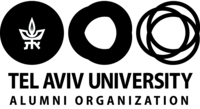Privacy in Crisis – The Day After
In honor of the International Data Privacy Day, occurring on January 28th, we asked Prof. Michael Birnhack, Associate Dean for Research, Professor of Law at TAU's Buchmann Faculty of Law and Director of the S. Horowitz Institute for Intellectual Property in memory of Dr. Amnon Goldenberg, Co-Founder of the 'Privacy Israel' Non-Profit Organization, and Alumnus of the Buchmann Faculty of Law, to bring the TAU Alumni community up to date with current privacy issues around contact-tracing technology.
The International Data Privacy Day, like other days of its kind, is an attempt to raise awareness of privacy, and an opportunity to mention why it is important that we protect our privacy. The past year, full of difficult and complex challenges in the shadow of the global COVID-19 pandemic, has not missed out on privacy issues. In this short column, I will comment on the challenges of the past year and the importance of privacy, even in times of crisis.
Until the desired solution of effective vaccination, epidemics require centralized management. We have all experienced this in the last year, and things are well known. Crisis Management is a complex and multi-leveled task. Information is one of the important tools in this story: information about those infected and who they were in contact with, information about those who should be in quarantine, information about those at risk and those who need help, and more. In the 21st century, countries have a great deal of information, as well as information technology for rapid data collection and processing, and an understanding of the potential of information to aid in the intelligent management of a crisis. Therefore, it is not surprising that we have seen a variety of initiatives - local and national - to collect information and use it during the pandemic. Local authorities sought to obtain lists of patients, police used drones to enforce mandatory quarantine, ministers sought to integrate private companies specializing in espionage into the national system, and of course, in Israel, the Shin Bet (The Israel Security Agency) was activated for general surveillance of civilians, while at the same time, the Ministry of Health developed a civilian App for the exact same purpose, called "The Shield". The App was somewhat successful in the first phase, in the sense that over one and a half million citizens installed it, but failed in the accuracy of detection, and its second version, which improved contact detection, failed in the sense that only a few installed the upgraded App.
At first glance, when we consider Privacy Vs. Public Health, the decision is clear: when medical teams risked their lives, hundreds of thousands lost their livelihoods, and lives went awry, privacy seems like a luxury. But such opposition is too quick and simplistic. The challenge is how to fight the plague, and at the same time preserve basic rights, make sure that the state acts within the law, both during the crisis and so that we are left with enough privacy the day after normalcy is regained. Instead of a binary of "Either this or that", it is required to find a way for "Both", As I have expanded in my article "Privacy in Crisis: Constitutional Engineering and Privacy Engineering">
Israel has clearly chosen a series of measures that have infringed on privacy. The Shin Bet surveillance is the clearest example. Israel is THE ONLY democratic state that has chosen to take such an extreme measure. Using a security tool, whose original purpose is to fight terrorism, against an innocent and law-abiding population, covertly, with no transparency - is a far-reaching step. It would have been way more appropriate to invest more efforts into the development of the civilian alternative, "The Shield".
The Shield's obstacle wasn't technological, but rather the loss of the public's trust, for if the Shin Bet is surveilling us anyways, what's the point in installing an App for the exact same purpose? by the way - The use of the Shin Bet violated not only abstract values such as the right to privacy, but also the Shin Bet itself. The Head of Shin Bet protested and objected (but when the directive was given, of course, obeyed); The existence of the Shin Bet's technological tool that allows general surveillance has been revealed, and with it its technological limitations. The enemy must have followed the matter closely as well. As time went on, it became clear that the Shin Bet's surveillance had led to a huge number of incorrect locations: tens of thousands were forced to enter unjustified quarantine. Also, it turned out that the benefit of Shin Bet's monitoring is very small. Data presented in the Knesset turned out to be incorrect. The State Comptroller pointed to only a small marginal benefit.
Now, with the vaccine, the light at the end of the tunnel intensifies, and the "day after" approaches. It's time to mend the rifts. Privacy is a basic personal need of each and every one of us to live a dignified life, to develop personality, to maintain normalcy and good social functioning.
Privacy is also an essential social tool, allowing us to live together - and separately; Privacy is a necessary component of a democratic regime, in which the state acts for the citizens and not the other way around. Privacy is protected as a fundamental right in the State of Israel, and also in legislation and extensive case law. Privacy is not a luxury. As stated in section 7 of the Basic Law: Man's Freedom and Liberty: "Every person is entitled to privacy."




